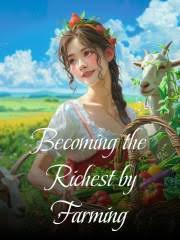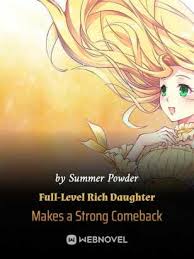The Story in 3 Sentences
A modern woman, Tong Yao, is zapped back to the 1980s by a freak lightning strike, landing in the body of a disgraced wife caught mid-scandal.
Her despair turns to dark comedy when she discovers she can eavesdrop on the neighborhood’s animal gossip, turning her from social pariah into the town’s most informed, if unwilling, secret-keeper.
She trades frantic meltdowns for strategic silence, using her bizarre gift to navigate family feuds and societal pressures, ultimately carving out an unconventional path to prosperity and personal peace.
Why It Stands Out
1. The Gossip Whisperer
Forget stock market tips; Tong Yao’s fortune is built on overhearing cats and dogs spill the town’s juiciest secrets, transforming passive eavesdropping into her most powerful survival tool.
2. Comedy in the Crucible
The novel finds relentless humor in its protagonist’s rock-bottom moments, turning public shaming and domestic chaos into a farcical stage where the only sane person is the one listening to the stray cats.
3. Subverting the Savior Complex
While other reborn heroines hustle with grand business empires, Tong Yao’s revolution is quiet and personal, finding power not in changing the world but in mastering the absurd, gossip-fueled reality she’s trapped in.
Characters That Leave a Mark
There’s Si Weimin – the stoic, top-tier doctor whose icy exterior hides a complex man grappling with a wife he doesn’t understand and a reputation under siege.
You’ll meet Si Xiaohui, who as the sharp-tongued sister-in-law, embodies the era’s social pressures and familial tensions, constantly testing Tong Yao’s newfound resilience.
And Wen Yun? They’re the one who, despite being criticized for an almost-too-perfect altruism, provides a crucial, if sometimes frustrating, anchor of familial support and wealth.
The Flaws Fans Debate
The ending feels abrupt and fails to neatly tie up all the intricate side plots, leaving some character arcs feeling unresolved.
Some supporting characters remain cartoonishly villainous until the very end, lacking the depth or redemption that would make their conflicts more satisfying.
The near-flawless, wealthy parents, Wen Yun and Tong Yaohui, can feel like a narrative convenience, bordering on Mary-Sue territory and slightly undermining the story’s gritty setting.
Must-Experience Arcs
Ch. 1–50: The Scandal & The Secret – Tong Yao wakes up mid-crisis, branded a thief and adulteress, and stumbles upon her animal-whispering ability, setting the darkly comic tone for her survival.
Ch. 200–300: Family Feuds & Feline Intel – Tong Yao uses her unique gift to navigate escalating tensions with Si Xiaohui and other family members, turning animal gossip into strategic leverage within the household.
Ch. 650–750: Harvesting Peace – Having weathered countless storms, Tong Yao focuses on consolidating her hard-won stability and wealth, using her influence and secrets to protect her chosen family and secure her future.
Killer Quotes
“Those who always walk by the river eventually get their shoes wet.”
Cultural Impact
Readers devoured the raws, with some fans reporting reading hundreds of chapters in just a couple of days, a testament to its addictive, drama-fueled pacing.
The novel sparked online discussions for its unique “get rich by eating melons” (watching drama) premise, a refreshing twist on the standard rebirth-to-wealth trope.
Its portrayal of 1980s Chinese societal norms and family dynamics resonated with readers, making it a frequently recommended title in “slice of life” and “strong couple” romance categories.
Final Verdict
Start Here If You Want:
A hilarious, unconventional take on the rebirth genre where the power is gossip, not gold mines.
A strong, resilient female lead who wins by outsmarting, not overpowering, her circumstances.
A richly detailed, immersive dive into 1980s Chinese urban life, full of social intrigue and domestic drama.
Study If You Love:
Narratives that use humor as a coping mechanism for trauma and social alienation.
Stories exploring the subversion of traditional female roles within historical or period settings.
The literary device of the “unreliable narrator” or, in this case, the “unwilling eavesdropper,” as a driver of plot and character development.
Avoid If You Prefer:
Tightly wrapped, perfectly resolved endings with no loose threads.
Stories where the protagonist actively seeks to change the world or build a vast empire.
Plots that avoid any hint of “Mary-Sue” supporting characters or convenient familial wealth.





